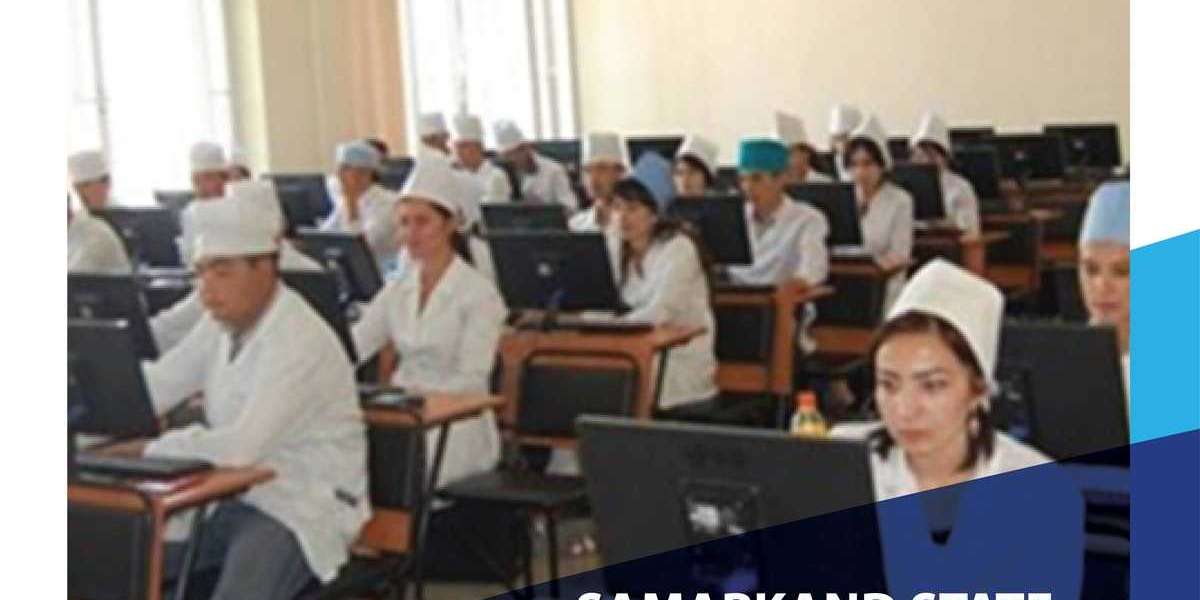Samarkand State Medical Institute (SSMI), located in the historic city of Samarkand, Uzbekistan, has established itself as a leading institution for medical education in Central Asia. With a commitment to providing high-quality education and training, the institute offers a diverse range of programs and degrees aimed at preparing the next generation of healthcare professionals. This article explores the various programs available, the structure of the degrees, and the unique opportunities for students at SSMI.
Overview of the Institute
Founded in 1930, Samarkand State Medical Institute has a rich history and a strong reputation for academic excellence. The institute is recognized for its comprehensive curriculum, experienced faculty, and state-of-the-art facilities. It is also a pivotal center for medical research and development in Uzbekistan, contributing significantly to public health initiatives in the region.
Undergraduate Programs
SSMI offers a range of undergraduate programs tailored for students pursuing a career in medicine. The primary degree offered is the Bachelor of Medicine and Bachelor of Surgery (MBBS), which typically spans six years. This program is designed to equip students with essential medical knowledge and clinical skills through a blend of theoretical coursework and practical experience.
Key Components of the MBBS Program:
Basic Medical Sciences: The initial years focus on foundational subjects such as anatomy, physiology, biochemistry, and pharmacology. These courses are crucial for understanding the human body and the mechanisms of disease.
Clinical Training: As students progress into the later years of the program, they engage in clinical rotations across various specialties, including internal medicine, surgery, pediatrics, obstetrics, and gynecology. This hands-on experience is vital for developing practical skills and patient care competencies.
Community Health: Emphasizing the importance of public health, SSMI includes community health programs in its curriculum. Students learn to address health issues at the population level, preparing them for roles in public health and preventive medicine.
Postgraduate Programs
For those seeking advanced education, SSMI offers a range of postgraduate programs, including Master's and Doctorate degrees in various medical and healthcare fields. These programs cater to medical professionals looking to specialize or engage in research.
Master’s Degrees: Specializations available include fields such as pediatrics, surgery, internal medicine, and public health. The Master's programs generally require two years of study and a research thesis, allowing students to deepen their knowledge in their chosen areas.
Doctoral Programs (PhD): For those interested in academic or research careers, SSMI offers PhD programs in various medical disciplines. These programs focus on advanced research methodologies and require the completion of a dissertation that contributes to the field.
Continuing Education and Specialization
In addition to traditional degree programs, Samarkand State Medical Institute provides opportunities for continuing education and professional development. These programs are designed for healthcare professionals who wish to enhance their skills or learn about the latest advancements in medicine.
Short Courses and Workshops: SSMI organizes workshops and seminars on contemporary medical practices, innovative treatment techniques, and emerging healthcare technologies. These courses are often led by expert faculty and guest speakers from around the world.
Residency Programs: The institute also offers residency programs in various specialties. These competitive programs provide in-depth training and experience in specific areas of medicine, essential for becoming a licensed specialist.
Research Opportunities
Research is a cornerstone of medical education at SSMI. The institute encourages students and faculty to engage in research projects that address local and global health issues. Students can participate in ongoing research initiatives or develop their own under faculty supervision. This emphasis on research not only enhances learning but also contributes to the advancement of medical knowledge.
Facilities and Resources
SSMI boasts modern facilities designed to support the educational experience of its students. Key resources include:
Libraries: The institute’s libraries are equipped with a vast collection of medical literature, journals, and online databases, facilitating extensive research opportunities.
Laboratories: State-of-the-art laboratories provide students with practical training in various medical disciplines, ensuring they gain hands-on experience with the latest technologies and methodologies.
Clinical Skills Centers: These centers allow students to practice clinical skills in a simulated environment, enhancing their preparedness for real-world medical scenarios.
Conclusion
Samarkand State Medical Institute stands out as a premier institution for medical education in Central Asia, offering a comprehensive range of programs and degrees for aspiring healthcare professionals. With a focus on academic excellence, practical training, and research opportunities, SSMI prepares its students to excel in the ever-evolving field of medicine. Whether through undergraduate or postgraduate programs, students at SSMI are well-equipped to make meaningful contributions to healthcare, both locally and globally. As the demand for skilled medical professionals continues to rise, the role of institutions like Samarkand State Medical Institute in shaping the future of medicine becomes increasingly vital.





